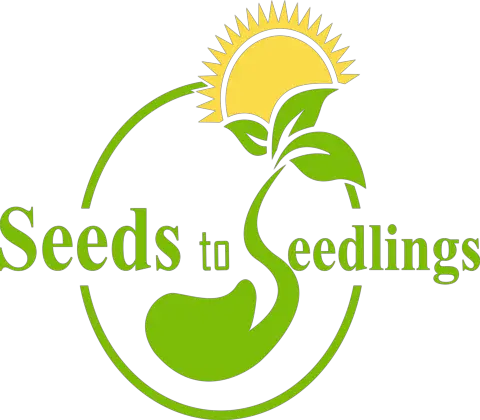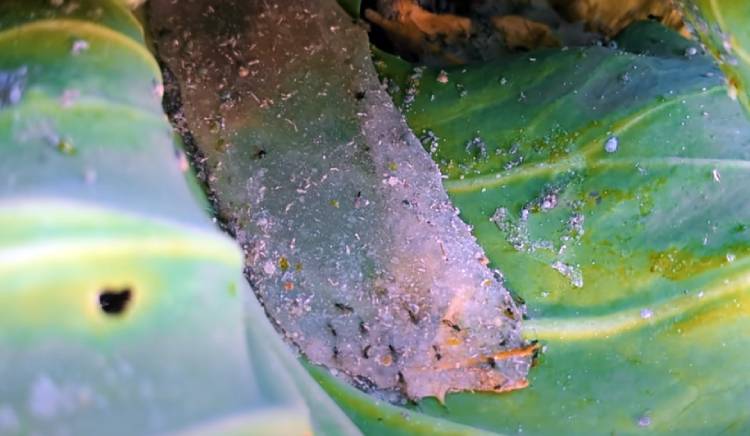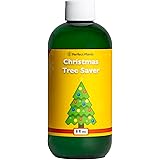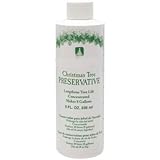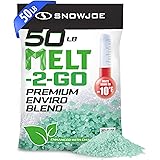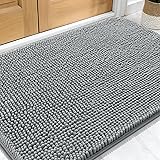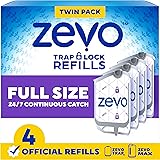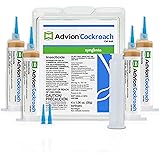Once upon a time in a beautiful garden, there lived a dedicated gardener named Emma. Emma’s pride and joy were her sweet peas, which she tended to with love and care. However, one day, she noticed that her precious plants were being attacked by a small army of aphids. Determined to save her sweet peas, Emma set out on a quest to rid her garden of these tiny pests.
And so, our story begins as Emma embarks on her journey to discover how to get rid of aphids on sweet peas.
Chapter 1: Identifying the Enemy
Before Emma could wage war against the aphids, she first needed to understand her enemy. Aphids are small, pear-shaped insects that feed on the sap of plants, causing leaves to curl and turn yellow.
They reproduce quickly and can severely damage or even kill plants if left unchecked. Armed with this knowledge, Emma was ready to take action.
Chapter 2: The Power of Observation
Emma started by carefully inspecting her sweet peas daily. She noticed that aphids favored the tender shoots, buds, and the undersides of leaves. As she observed the infested plants, she also discovered that ants were protecting the aphids because they fed on the honeydew the aphids produced.
It was clear that she would have to tackle both aphids and ants in her battle plan.
Chapter 3: Natural Defenses
Emma decided to recruit allies from the natural world. She learned that ladybugs, lacewings, and hoverflies were natural predators of aphids. By planting flowers like marigolds, calendula, and yarrow, she could attract these beneficial insects to her garden.
Additionally, she introduced these insects directly to her sweet peas to speed up the aphid elimination process.
Chapter 4: Home Remedies
During her research, Emma found that soapy water could be an effective weapon against aphids. She mixed a few drops of mild dish soap with water and sprayed the solution onto her sweet peas. Within days, she saw a significant reduction in the aphid population.
She also learned that using Dawn dish soap would be safe for her plants and effective at eliminating aphids.
Chapter 5: Chemical Warfare
Emma’s battle against aphids was going well, but she still wanted a faster solution. She turned to chemical insecticides, choosing ones that were specifically designed to target aphids without harming her plants or beneficial insects.
She applied the insecticides according to the manufacturer’s instructions and soon saw the aphid numbers dwindling.
Chapter 6: Prevention is the Best Medicine
With the aphid population under control, Emma focused on preventing future infestations. She made sure to keep her sweet peas well-watered and properly fertilized, as healthy plants are less susceptible to aphid attacks.
She also pruned any overcrowded growth to improve air circulation and reduce hiding spots for aphids.
Chapter 7: Victory
Thanks to her perseverance and determination, Emma successfully reclaimed her garden from the aphids. Her sweet peas were once again thriving, and she could finally enjoy the fruits of her labor.
While she knew that aphids might return one day, she was confident in her ability to protect her plants and keep her garden aphid-free.
Frequently Asked Questions (FAQs)
Yes, soapy water can be an effective way to get rid of aphids. Mixing a few drops of mild dish soap with water and spraying it onto infested plants can help eliminate aphids without causing harm to the plants.
Yes, Dawn dish soap can be used to get rid of aphids. It is a mild soap that can be mixed with water and sprayed onto infested plants without causing harm. Make sure to use a diluted solution, as using too much soap can damage your plants.
The fastest way to get rid of aphids is to use a combination of methods, such as introducing natural predators like ladybugs and lacewings, spraying soapy water or insecticidal soap, and using chemical insecticides specifically designed for aphids. Regular monitoring and early intervention will help control aphids more quickly.
Aphids can cause significant damage to sweet peas by feeding on the sap of the plants, which can lead to yellowing and curling leaves, stunted growth, and reduced flowering. In severe cases, aphid infestations can kill sweet pea plants. It’s essential to take action as soon as you notice an aphid problem to protect your sweet peas.
Yes, you can spray a diluted solution of Dawn dish soap and water on plants to help control aphids. However, it’s important to use a mild concentration to avoid harming the plants. Generally, a few drops of Dawn dish soap mixed with a quart of water should be safe for most plants.
It’s challenging to get rid of aphids permanently, as they can return under the right conditions. However, by implementing a combination of prevention and control methods, such as promoting healthy plant growth, attracting beneficial insects, using soapy water or insecticidal soap, and applying chemical insecticides when necessary, you can keep aphid populations under control and minimize the damage they cause to your plants.
Regular monitoring and early intervention are crucial for managing aphids effectively.
The Moral of the Story
As Emma’s tale came to a close, she could finally enjoy her beautiful, aphid-free garden once more. Her journey had taught her valuable lessons about the importance of vigilance, prevention, and using a combination of methods to tackle these persistent pests.
In sharing Emma’s story, we hope that fellow gardeners will also find the inspiration and tools needed to triumph in their battles against aphids on sweet peas. By learning from her experiences and following her example, you too can keep your garden healthy and thriving.
Remember, the key to success lies in understanding the enemy, using natural defenses, employing home remedies, and turning to chemical solutions when necessary. But most importantly, it’s about being proactive and consistent in your efforts to keep aphids at bay.
So, take heart and follow in Emma’s footsteps. With determination and the right strategies, you can protect your sweet peas from aphids and enjoy a garden that’s both beautiful and bountiful.
In Conclusion: A Gardener’s Victory
Emma’s journey to rid her garden of aphids on sweet peas serves as a reminder that, while pests can be a formidable foe, they are not invincible. By employing a mix of prevention, observation, and targeted treatment methods, you can reclaim your garden from these tiny invaders.
Embrace the lessons learned from Emma’s story and apply them in your own garden. With patience, perseverance, and the right approach, victory over aphids on sweet peas can be yours, too.
Now, go forth and enjoy your garden, knowing that you’re well-equipped to face any aphid infestations that may come your way.
Auto Amazon Links: No products found.
Perfect Plants Christmas Tree Saver 8oz. | Easy Use Xmas Tree Preserver Food | Have Healthy Green Christmas Trees All Holiday Season
$13.99 (as of January 2, 2026 14:35 GMT +00:00 - More info- Product prices and availability are accurate as of the date/time indicated and are subject to change. Any price and availability information displayed on [relevant Amazon Site(s), as applicable] at the time of purchase will apply to the purchase of this product.
VISTARAFT 47 Inch Long Christmas Tree Watering Funnel, Christmas Tree Watering System Device Long Tree Watering Waterer Spout for Indoor Outdoor Xmas Tree - Red
Now retrieving the price.
(as of January 2, 2026 14:35 GMT +00:00 - More info- Product prices and availability are accurate as of the date/time indicated and are subject to change. Any price and availability information displayed on [relevant Amazon Site(s), as applicable] at the time of purchase will apply to the purchase of this product.
HoHoHoH2o Automatic Christmas Tree Watering System Device, Santa’s Tree Helper Keeps Your Christmas Tree Healthy and Fresh, Refillable 2.5 gallons Capacity Box - Silver/Festive
$84.95 (as of January 2, 2026 14:35 GMT +00:00 - More info- Product prices and availability are accurate as of the date/time indicated and are subject to change. Any price and availability information displayed on [relevant Amazon Site(s), as applicable] at the time of purchase will apply to the purchase of this product.
Rocky Mountain Goods Christmas Tree Food - 8 oz Tree Preservative - Reduce Needle Drop - Greener Scent - Fir, Pine, Spruce Trees - Extend Tree Life
$9.95 (as of January 2, 2026 14:35 GMT +00:00 - More info- Product prices and availability are accurate as of the date/time indicated and are subject to change. Any price and availability information displayed on [relevant Amazon Site(s), as applicable] at the time of purchase will apply to the purchase of this product.
FirEver Pure Christmas Tree Food | Preserver Additive & Season Extender for Live Xmas Trees | Keep It Green, Reduce Needle-Drop | Miracle Freshness (8 oz)
$16.66 (as of January 2, 2026 14:35 GMT +00:00 - More info- Product prices and availability are accurate as of the date/time indicated and are subject to change. Any price and availability information displayed on [relevant Amazon Site(s), as applicable] at the time of purchase will apply to the purchase of this product.
Snow Joe Premium Enviro Blend Ice Melt, Green-Coated Deicer Crystals, 50 lb - Safer Melter for Vegetation, Concrete & Metals w/ Anti-Corrosion Calcium Magnesium Acetate
$32.97 (as of December 31, 2025 15:15 GMT +00:00 - More info- Product prices and availability are accurate as of the date/time indicated and are subject to change. Any price and availability information displayed on [relevant Amazon Site(s), as applicable] at the time of purchase will apply to the purchase of this product.
OLANLY Dog Door Mat for Muddy Paws 30x20, Absorbs Moisture and Dirt, Absorbent Non-Slip Washable Doormat, Quick Dry Chenille Mud Mat for Dogs, Entry Indoor Entryway Carpet for Inside Floor, Grey
$9.49 (as of December 31, 2025 15:15 GMT +00:00 - More info- Product prices and availability are accurate as of the date/time indicated and are subject to change. Any price and availability information displayed on [relevant Amazon Site(s), as applicable] at the time of purchase will apply to the purchase of this product.
TERRO Ant Killer Bait Stations T300B - Liquid Bait to Eliminate Ants - Bait System - 12 Count Stations for Effective Indoor Ant Control
$10.88 (as of December 31, 2025 15:15 GMT +00:00 - More info- Product prices and availability are accurate as of the date/time indicated and are subject to change. Any price and availability information displayed on [relevant Amazon Site(s), as applicable] at the time of purchase will apply to the purchase of this product.
Zevo Flying Insect Trap Official Refill Cartridges - Fits Both Zevo Trap & MAX Indoor Fly Trap - Authentic Trap+Lock Technology to Catch Gnats, House & Fruit Flys (4 Official Refill Cartridges)
$14.97 (as of December 31, 2025 15:15 GMT +00:00 - More info- Product prices and availability are accurate as of the date/time indicated and are subject to change. Any price and availability information displayed on [relevant Amazon Site(s), as applicable] at the time of purchase will apply to the purchase of this product.
Advion Cockroach Gel Bait, 4 Tubes x 30-Grams, 1 Plunger and 2 Tips, German Roach Insect Pest Control, Indoor and Outdoor Use, Roach Killer Gel for American, German and Other Major Cockroach Species
$25.94 (as of December 31, 2025 15:15 GMT +00:00 - More info- Product prices and availability are accurate as of the date/time indicated and are subject to change. Any price and availability information displayed on [relevant Amazon Site(s), as applicable] at the time of purchase will apply to the purchase of this product.
